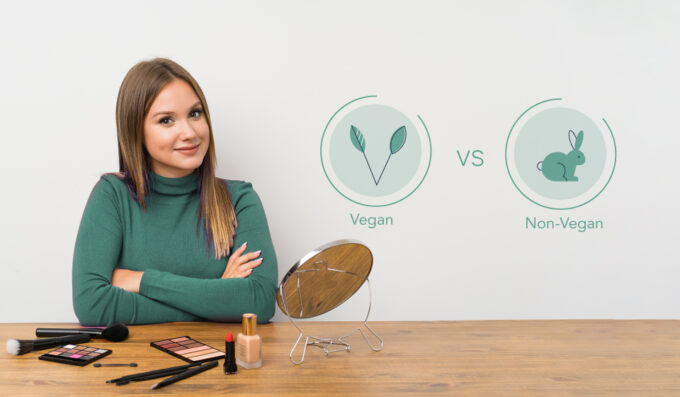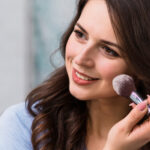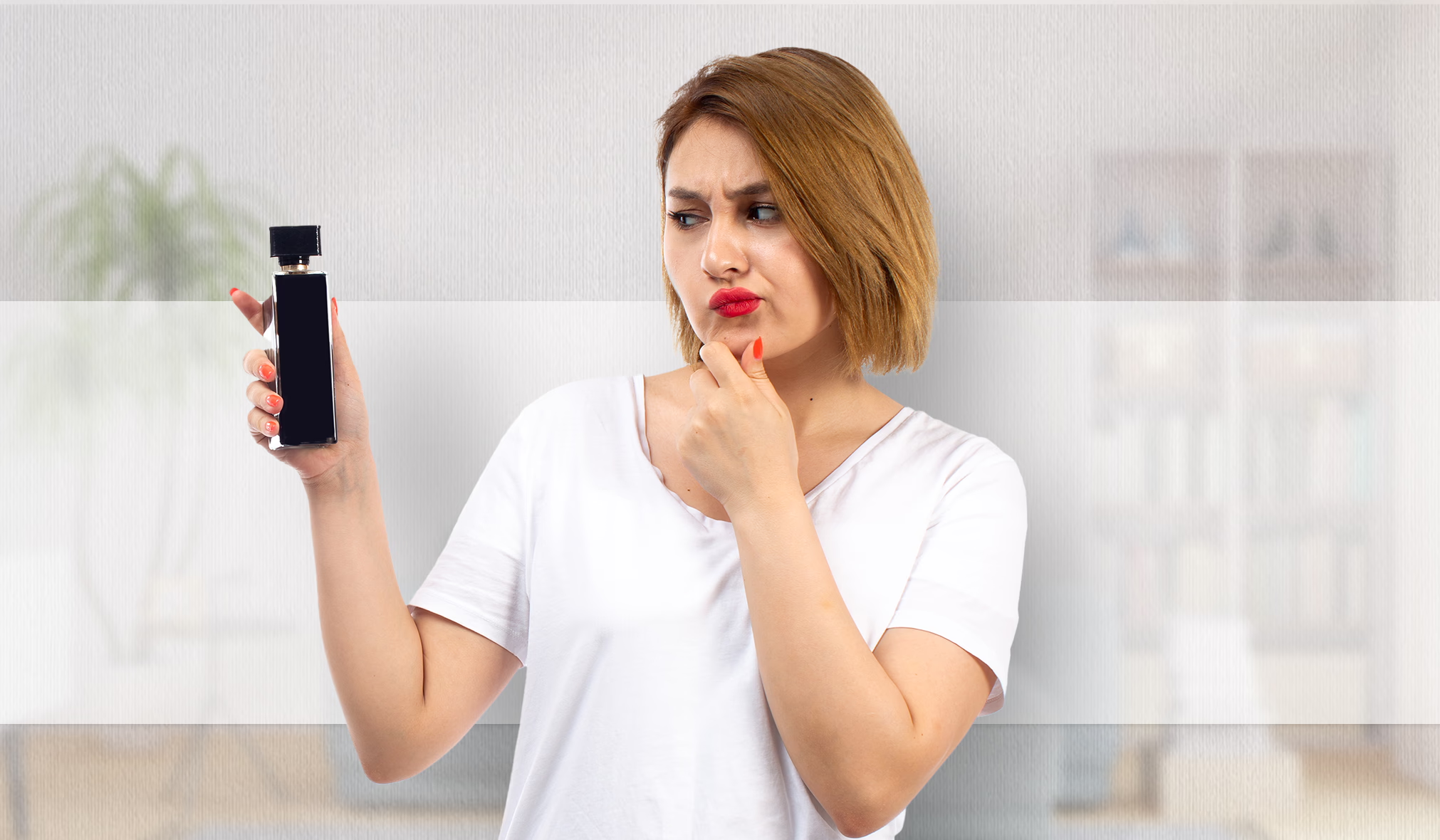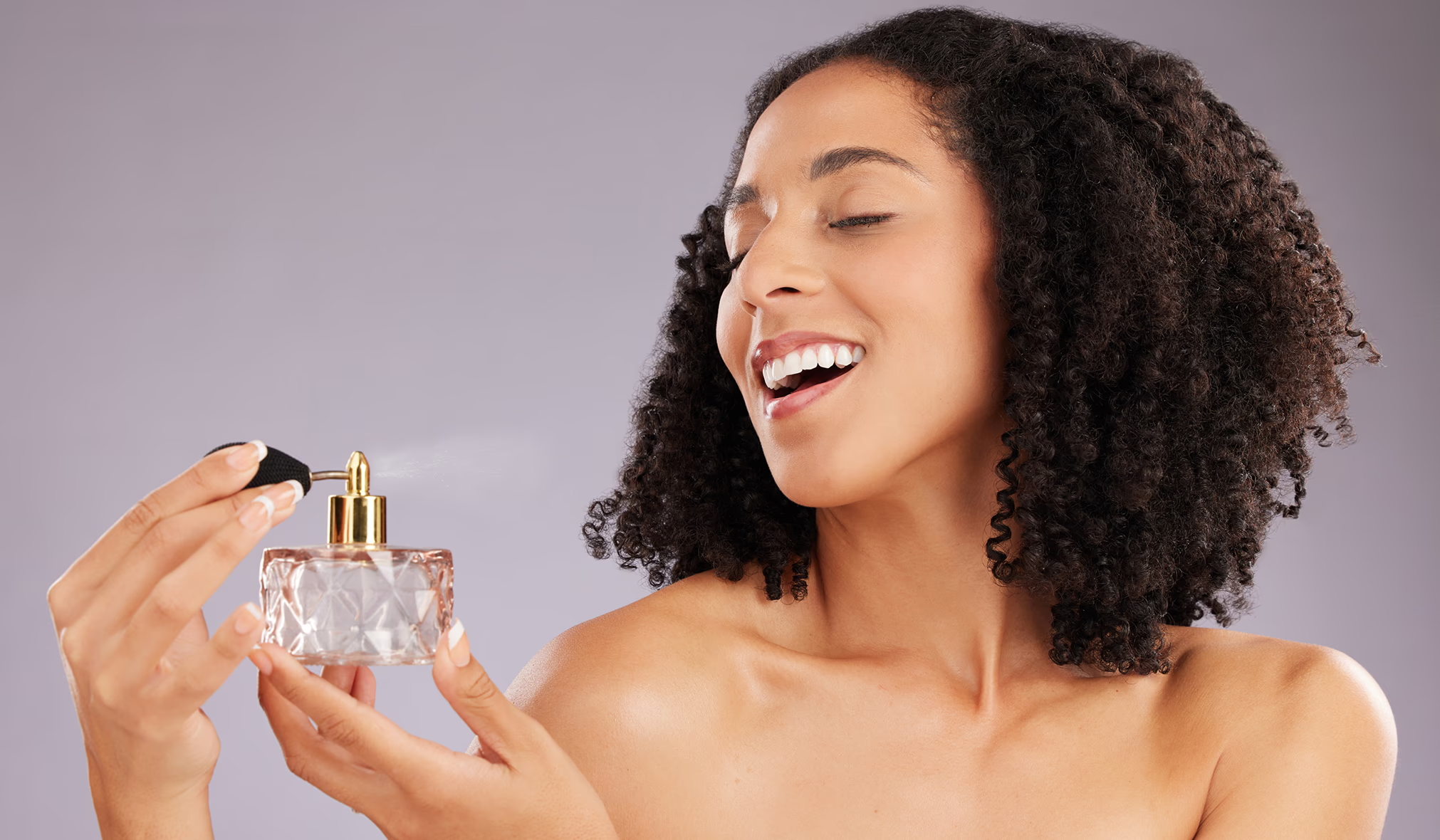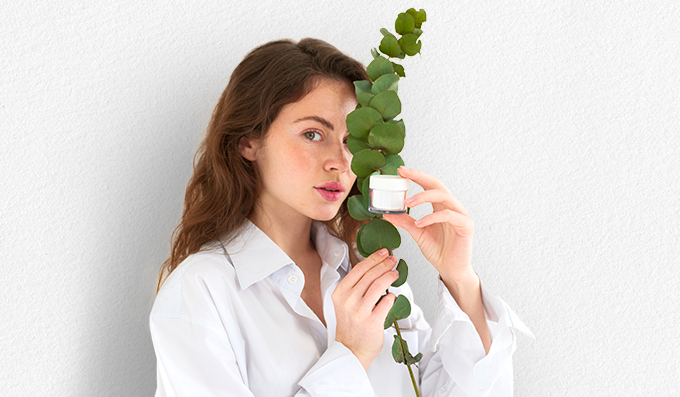Vegan makeup is growing fast in the beauty industry, and it’s easy to see why. More people are looking for natural, safer products, and vegan makeup seems to tick all the boxes.
Table Of Content
- What is Vegan Makeup?
- What is Non-Vegan Makeup?
- What’s the Difference Between Vegan and Non-Vegan Skincare?
- What are the benefits of vegan skincare?
- 1. Ethical and Cruelty-Free
- 2. Good for the Environment
- 3. Rich in Nutrients for Healthier Skin
- 4. Gentle on Sensitive Skin
- 5. Simpler Formulas with Fewer Ingredients
- 6. Free from Toxic Chemicals
- 7. Improves Skin Quality Over Time
- 8. A Safer Choice for Long-Term Health
- 9. Better for All Skin Types
- 10. Supports Sustainable Packaging
- Disadvantages of Vegan Makeup
- Ingredient Transparency
- Limited Options in Certain Categories
- Higher Price Tags
- Misinformation and Greenwashing
- What You Can Do
- Conclusion
- FAQs
So, what exactly is the difference between vegan and regular makeup?
Vegan makeup doesn’t contain any animal products. Traditional makeup, on the other hand, often uses animal by-products like beeswax, lanolin, or even carmine.
More and more people are turning to vegan cosmetics. The market is expected to hit $28.5 billion by 2031. In this article, we’ll discuss the key differences between vegan vs. non-vegan makeup, so you can decide what’s best for your beauty routine.
What is Vegan Makeup?
Vegan makeup uses no animal-based ingredients like beeswax, honey, collagen, or lanolin. Instead, it is made on plant-based or synthetic alternatives. It is a great choice if you’re looking for beauty products, to avoid animal-derived substances.
Now, here’s something many people get confused about. Vegan doesn’t always mean cruelty-free. Vegan refers to the ingredients, while cruelty-free means the product wasn’t tested on animals at any stage.
So, just because a product is vegan doesn’t guarantee it’s cruelty-free. That’s why checking for certifications like the Vegan Society seal or a cruelty-free label is important.
Don’t worry! Vegan cosmetics today are as effective, long-lasting, and beautiful as traditional ones!
What is Non-Vegan Makeup?
Many products we use every day contain ingredients made from animals. For example, lanolin, taken from sheep’s wool, is often used in lip balms or glosses to keep them soft and smooth. Similarly, shellac, made from lac bugs, is a common ingredient in nail polish and hair sprays.
Some products use fats and oils from animals too. Glycerine, often found in soaps and moisturizers, usually comes from animal fats, though plant-based options exist. Casein, a milk protein, is used in hair treatments and facial products. Whereas squalene, is extracted from shark liver oil and added to lip balms and deodorants.
Even the shimmer in your makeup is made from fish scales. Plus, some brushes and false lashes are made with animal hair like mink or goat.
What’s the Difference Between Vegan and Non-Vegan Skincare?
Have you ever wondered how your skincare products are made? I used to think about the benefits of skincare but not about where it comes from.
Most skincare brands aren’t vegan. It means they either test on animals or use animal-derived ingredients. Sometimes, the ingredients look harmless, but they can still come from animals.
For example, gelatin is made by boiling animal bones, glucosamine comes from chicken bones, and lactose is a sugar from milk. Even honey and beeswax are animal products!
If you want vegan skincare, look for certifications like Leaping Bunny or PETA’s Beauty without Bunnies. Many vegan brands also use plant-based ingredients like aloe vera, jojoba oil, or shea butter. These are great for your skin and are cruelty-free!
Non-vegan skincare often includes things like collagen or elastin, which come from animals. While they may work for some, they aren’t always gentle on sensitive skin.
What are the benefits of vegan skincare?
If you’re looking for a skincare routine that’s kind to your skin, the environment, and animals, vegan skincare might be just what you need. Some benefits of vegan makeup are:
1. Ethical and Cruelty-Free
Vegan skincare ensures no animals are harmed in product creation or testing. Unlike traditional skincare, it excludes animal-derived ingredients like lanolin and beeswax. It makes a kinder choice for animals and the planet. Every purchase supports ethical practices and reduces animal cruelty globally.
2. Good for the Environment
Vegan skincare uses sustainable plant-based ingredients. It reduces environmental harm. Vegan products require less water, energy, and land. Plus, they also avoid harmful pesticides and pollutants common in animal farming. So it promotes a cleaner, greener Earth.
3. Rich in Nutrients for Healthier Skin
Vegan skincare is loaded with vitamins, antioxidants, and essential oils derived from plants. Ingredients like rosehip oil, vitamin C, and coconut oil repair and hydrate the skin. These nutrients fight aging, improve texture, and protect against environmental damage naturally.
4. Gentle on Sensitive Skin
With fewer harsh chemicals, vegan skincare is ideal for sensitive skin. It excludes common irritants like parabens, sulfates, and synthetic fragrances, which can cause redness or dryness. Plant-based ingredients ensure soothing relief for all skin types, including reactive and dry skin.
5. Simpler Formulas with Fewer Ingredients
Vegan products often have simpler formulas using high-quality, natural ingredients. Unlike regular skincare, they skip unnecessary fillers and toxic chemicals. It minimizes the chances of acne, allergies, and adverse reactions, ensuring a safe experience.
6. Free from Toxic Chemicals
Vegan skincare avoid harmful ingredients like formaldehyde, butylated hydroxytoluene (BHT), and uric acid. These chemicals, commonly found in traditional skincare, can disrupt your skin’s balance. Instead, vegan products prioritize natural solutions that promotes skin health.
7. Improves Skin Quality Over Time
Plant-based products help your skin heal and rejuvenate with every use. Vegan skincare promotes collagen production, fights inflammation, and reduces irritation. Over time, these benefits lead to softer, smoother, and more radiant skin.
8. A Safer Choice for Long-Term Health
Traditional skincare often contains synthetic chemicals that can seep into your pores and harm your health. Vegan skincare eliminates these risks by focusing on natural, nourishing alternatives. It ensures a healthier skincare routine for years to come.
9. Better for All Skin Types
Vegan skincare works for everyone, including those with oily, dry, or combination skin. Ingredients like aloe vera, mint, and avocado oil provide hydration and balance.
10. Supports Sustainable Packaging
Many vegan brands focus on eco-friendly packaging, using recyclable glass or aluminum instead of plastic. It reduces waste and helps preserve the environment. So every purchase is an environmentally responsible choice.
Disadvantages of Vegan Makeup
Switching to vegan makeup can be exciting, but it also has its challenges. Here’s what you need to know
Ingredient Transparency
Ingredients like “stearic acid” or “glycerin” can come from plants or animals. I suggest choosing brands that clearly label products as vegan or trusted retailers like Sustai Market, where everything is verified.
Limited Options in Certain Categories
The market for vegan makeup is growing, but some categories still have limited choices. Waterproof mascaras or bold lipsticks might be harder to find. Look for innovative vegan brands using plant-based or synthetic ingredients without sacrificing quality.
Higher Price Tags
Vegan makeup can sometimes be pricier. This is due to high-quality, sustainably sourced ingredients. But the long-term benefits to your health and the planet are worth the extra cost.
Misinformation and Greenwashing
Watch out for brands that say they’re vegan or cruelty-free but aren’t. Some use these terms just to market their products. Rely on certified labels or platforms, so you know you’re making the right choice.
What You Can Do
Vegan makeup is a great choice for animals, but it doesn’t mean it’s always safe. Here’s how to make sure you’re picking the right products:
- Look for Leaping Bunny AND organic certifications like Soil Association or USDA Organic.
- Download apps like Think Dirty or check out the Environmental Working Group to learn about ingredients.
- Always remember that “vegan-friendly” doesn’t mean “clean beauty.” It’s important to go beyond the label.
Conclusion
In conclusion, you might still be unsure about choosing between vegan vs. non-vegan. Vegan makeup is gaining popularity for being gentle and healthier for your skin. Unlike traditional makeup, vegan products won’t clog your pores or expose you to harmful chemicals.
Traditional cosmetics, on the other hand, can cause breakouts, irritation, and inflammation, but not all of them. Now that you know the difference, you can choose makeup that complements your skin.
FAQs
1. Is vegan makeup better?
Vegan makeup and skincare products have fewer harmful ingredients. This makes them gentler on your skin, the largest organ. Simply put, vegan cosmetics contain fewer ingredients than regular products.
2. Is it Haram to use non-vegan makeup?
They’re halal as long as you avoid animal products or alcohol. The same applies to makeup. Avoid non-vegan lip products, but the rest is fine.
3. How to tell if makeup is vegan?
The best way to check if a product is vegan is by reading the Allergen Info. If that’s not available, look for a “Suitable For Vegans” label or the Certified Vegan logo.


